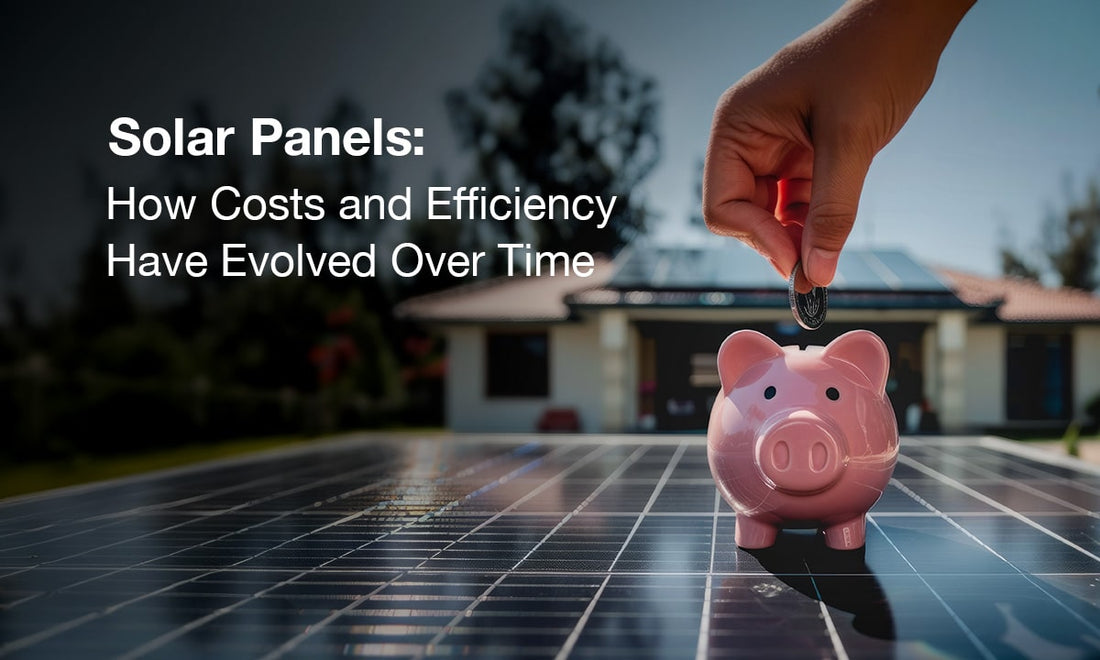
How Have the Price and Efficiency of Solar Panels Changed Over Time?
Solar energy has come a promising way in recent years. Once considered a luxury, it’s not becoming a mainstream choice for homeowners and businesses alike. This shift is largely due to significant advancements in the technology of solar panels. As a result, costs have been reduced while efficiency has increased when it comes to energy consumption.
The solar revolution
Today, solar panels are about 60% cheaper and 40% more efficient. In 2010, the average cost of solar panels was around $8.70 per watt. Today, this figure has plummeted to $3 per watt, making solar energy accessible to a much wider audience.
Not only are solar panels more affordable, but they are also significantly better at converting sunlight into electricity. In 2010, the average efficiency was around 15%, while today’s panels achieve efficiency rates between 19% and 22%. This means you can build more power or electricity from the same amount of sunlight than from a grid.
What does the future hold?
While the progress made in solar technology is impressive, their journey does not stop here. Experts predict that the price of solar panels could continue to decline, making it an even more attractive option for homeowners and businesses. However, the rate of this decline will depend on several factors, including technological breakthroughs, market conditions, and government policies.
Solar energy is playing an increasingly important role in our transition to a sustainable future. With costs decreasing and efficiency increasing, it’s an exciting time to consider harnessing the power of the sun.
FAQs
-
Is solar panel efficiency necessary?
Higher efficiency means more electricity generated from the same amount of sunlight, maximizing your investment. Efficient panels can generate the same amount of power in a smaller area. Furthermore, the increased energy production can offset this over time, and the land required for solar installations, reducing the overall environmental footprint.
-
How long will solar panels last?
Solar panels are designed to last for several years while most manufacturers offer warranties ranging from 25 to 30 years, covering the panel’s performance. However, the lifespan of a solar panel can be influenced by factors such as:
- Panel quality
- Installation quality
- Weather conditions
- Maintenance
-
Does the future look promising for solar panels?
Several factors contribute to this optimistic outlook:
- Decreasing costs
- Increasing efficiency
- Growing environmental awareness
- Government incentives
- Energy storage advancements
These factors combined indicate a bright future for solar panels as a clean, reliable, and cost-effective energy source.
